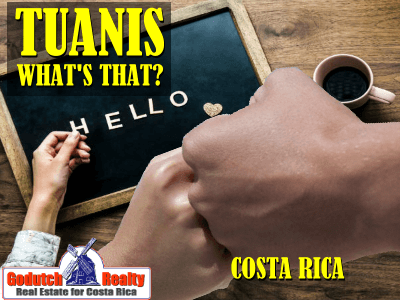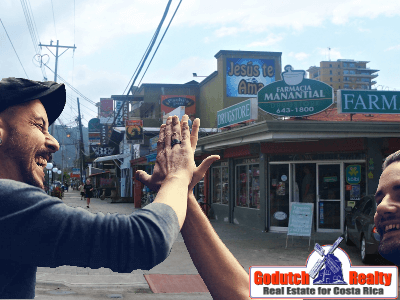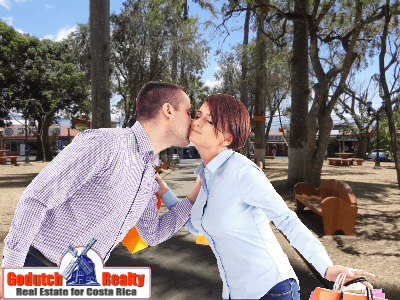 When you live in Costa Rica, you’ll hear the word tuanis quite a bit. You’ll hear tuanis used by the younger population, it’s a “cool” word to use. It’s a word that you wouldn’t use in a business meeting or with your doctor unless you grew up together or are drinking buddies.
When you live in Costa Rica, you’ll hear the word tuanis quite a bit. You’ll hear tuanis used by the younger population, it’s a “cool” word to use. It’s a word that you wouldn’t use in a business meeting or with your doctor unless you grew up together or are drinking buddies.
Tuanis is a word used mainly by pachucos. It’s not really the Spanish word you’d want to use when talking to the bank manager or your doctor.
It is street slang.
It’s quite customary to hear used by the young, the lower classes and in beach areas of Costa Rica. There, tuanis is used by surfer dudes, just like the shaka sign.
Tuanis has several meanings. It is used as a greeting, like saying hi or cool. But it also means ok, nice, pleasant, enjoyable.
¿Comos estás? Tuanis! = How are you? Cool!
Qué tuanis es tu mama = You mom is really cool
Qué tuanis está el ambiente en este lugar = How pleasant is the ambiance in this place

Furris
Furris is the exact opposite of tuanis. Furris means horrible.
Me siento furris, me pasé de tragos anoche = I feel horrible, I drank too much last night.
Ese concierto anoche estaba furris = that concert last night was awful.
Other ways of greeting
There are much nicer ways of saying hi in Costa Rica
- Hola
- Pura vida!
- ¿Como está?
- ¿Qué tal?
- ¿Todo bien?
When saying hi from a distance, like saying good morning, without knowing the person or people: Buen día!
Between buddies: ¿diay mae, como vas?

How to greet in Costa Rica
When you meet someone for the first time in a business meeting, you should greet with a handshake, no matter their sex.
When meeting someone for the first time socially, the greeting is different. It depends a great lot on your and the other person’s age. If you’re a grown adult, you can’t get away with saying hola, tuanis! Or hola, pura vida?
When you greet someone of the opposite sex during a social meeting, you give that person a peek on the cheek or a light kiss on the cheek. The Ticas kiss more in the air than on the cheek. Someone of the same sex is usually greeted by a handshake.
Costa Ricans don’t hug unless it is a strong hug between people who know each other well. In that case, the hug is usually an emotive hug. Learn more about kissing in Costa Rica here.
The time of the day
Just like in other languages, there is a difference in the greeting, depending on the time of the day
- Buenos días or buen día
- Buenas tardes
- Buenas noches
How to answer
If someone greets you and asks como está? you can answer as follows:
- Bien, por dicha
- Bien, gracias a Diós
- Pura vida
- Tuanis
To learn Spanish, contact Wagner Freer of Spanish School for Residents and Expats, to buy or rent a property in Costa Rica, contact us.
We strongly recommend this language school as your best choice to learn Spanish, click here to contact them. Now also in Green Project Language School, Ojochal.

If you like this blog, connect with me on Google+ or subscribe to my newsletter by clicking the banner below.
I DO want to remind our readers that we appreciate any referrals you can send us. Also, please remember the GoDutch Realty agents when you talk about your home in Costa Rica, we appreciate it.

























